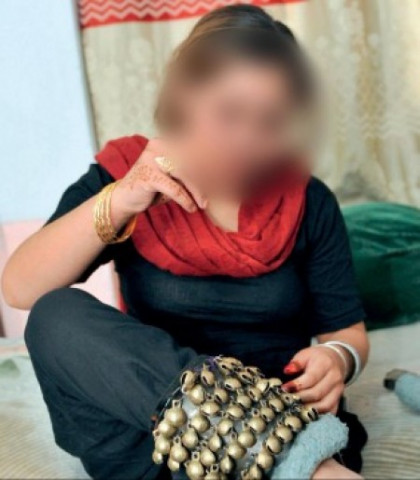Swat dancing girls back in business

Today Shabana and her sister Shabnam are back in business, offering their favours and dancing skills for ‘discerning gentlemen’ with cash to spare now that Pakistan’s army say they have pushed back extremist elements.
Business starts towards dusk. As the sun dips in the sky, Shabnam is already with a ‘client’. Aged 16, she has the fresh-faced beauty of youth and wears a top cut low enough to show a hint of cleavage and a love bite on her neck.
“We received death threats earlier, but not now,” she says, a year since the army offensive began and nine months since commanders declared the valley free of Taliban.
Her phone rings and she flicks it onto silent mode. Shabana says her sister is illiterate, likes her job and is happy. But her deadened eyes give a different impression.
Swat suffered the effects of ultra-conservatism for years, culminating in July 2007, when radical cleric Maulana Fazlullah launched a Taliban insurgency to impose a harsh brand of Islamic law across Swat, outlawing dancing, music, art and films.
Shabnam straps leather pads covered in small silver-coloured bells to her ankles. Pashtu pop blasting out of the stereo jars in a small guest room as she stamps her feet, wiggles her hips and flicks the bangles jingling on her arms. She looks apathetic, even bored.
Shabana is 24 and has already been working for nine years. A thick crust of dead skin lines her feet. Shabnam is now the one in the limelight.
The mere fact that they are back in their meticulously clean quarters on the first floor of a house tucked away in a back street, attests to the success of Pakistan’s military campaign.
“The Taliban earlier threatened this whole street over their FM radio, telling us to stay at home like all the other ladies,” said Shabana.
“The situation has normalized (now). There is no danger. People are coming. Through the army, we have security,” said Shabana, nervously flicking off call after call on her mobile.
“Sometimes I get fed up and turn the phone off,” she says, embarrassed.
“I get messages all day. It’s the men who can’t speak (to us) who (tend to) speak (to us) this way.” The sisters say there is no threat but they exist on the fringes of a conservative society in a city where security is tense.
“There are 10 to 12 dancing girls in this street. Strangers are not allowed to come here. You can only come through a reference,” says Shabana. Even her true identity is doubtful. She uses the same name as her murdered cousin. “People just look at our flesh, they don’t care about our names.”













COMMENTS
Comments are moderated and generally will be posted if they are on-topic and not abusive.
For more information, please see our Comments FAQ